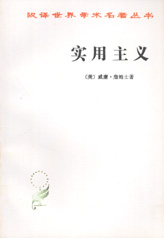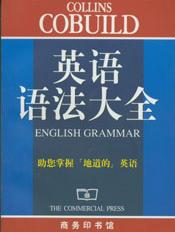牛津实用英语语法-第80部分
按键盘上方向键 ← 或 → 可快速上下翻页,按键盘上的 Enter 键可回到本书目录页,按键盘上方向键 ↑ 可回到本页顶部!
————未阅读完?加入书签已便下次继续阅读!
remark牋牋牋牋牋牋牋牋牋牋牋?state(wh)牋牋牋牋牋牋牋?urge
remember(wh)牋牋牋?stipulate vow
remind牋牋牋牋牋牋牋牋牋牋牋?suggest(wh)牋牋牋牋牋 warn
request牋牋牋牋牋牋牋牋牋牋牋 suppose(wh)牋牋牋牋牋 wish
resolve牋牋牋牋牋牋牋牋牋牋牋?teach牋牋牋牋牋牋牋牋牋牋牋牋?wonder (wh)
reveal(wh)牋牋牋牋牋牋?tell(wh)
此外,在其他一些表示交流的动词之后也可使用that从句,如plain,deny,explain等。(参见第316节C。)
关于上面表中所注的wh见下面E节。
例句如:
They alleged/made out that they had been unjustly dismissed.
他们声称/自称他们被不公平地解雇了。
He assumes that we agree with him.
他径自认为我们同意他了。
I can prove that she did it.
我能证明是她干的。
B 上面大多数动词可以与另一结构连用。(参见第二十三章至第二十六章。)
注意:动词+that从句并不一定与同一动词+不定式/动名词/现在分词意思相同:He saw her answering the letters(他看见她在写回信)意为他看到她正在做这件事。但He saw that she answered the letters可有两种意思:或者他注意到她做了这件事,或者他通过督促确实使她干了这件事。
C appear,happen,occur,seem,turn out需用it作主语:
It appears/seems that we have e on the wrong day.
好像我们来得不是时候。
It occurred to me that he might be lying.
我忽然想起他可能是在说谎。
It turned out that nobody remembered the address.
结果发现没人记得这地址。
D 在agree,arrange,be anxious,beg,mand,decide,de- mand,determine,be determined,order,resolve和urge这些词之后可以用that+主语+should来代替不定式,并且在insist及suggest后面可用这一结构而不用动名词:
They agreed/decided that a statue should be put up.
他们同意/决定要立起一座雕塑。
He urged that the matter should go to arbitration.
他极力主张这件事要提交仲裁。
He suggested that a reward should be offered.
他建议要悬赏。
(另参见第235节与第302节E。)
E A中标有(wh)的动词后面也可以跟所谓wh词(即what, when,where,who与why)或how开头的名词从句:
He asked where he was to go.
他问他该去哪儿。
They’ll believe whatever you tell them.
无论你告诉他们什么,他们都会相信的。
I forget who told me this.
我忘了这是谁告诉我的。
Have you heard how he is getting on?
你听说他怎么样了吗?
I can’t think why he left his wife.
我想不出他为什么会离开他的妻子。
I wonder when he will pay me back.
我不知道他什么时候会还钱给我。
?
'Amber demo'
347 so和not可替代that从句
?
A 在believe,expect,suppose,think和it appears/seems之后,表示同意前面说过的话时可以用so代替:
—Will Tom be at the party?
—I expect so/suppose so/think so./I think he will.
—汤姆会到联欢会去吗?
—我想会的。/我认为他会去的。
表示对前面说过的话加以否定时,可以用下列句式:
1 与so连用时,应当用动词的否定式:
—Will the scheme be a success?
—I don’t believe so/expect so/suppose so/think so.
—计划会成功吗?
—我不相信/我不指望/我不认为/我想不会。
—Are they making good progress?
—It doesn’t seem so.
—他们正在取得很大的进展吗?
—好像不是这样。
2 与not连用时,则用动词的肯定式:
—It won’t take long,will it?
—No,I suppose not./I don’t suppose so.
—这用不了多长时间,是吗?
—是的,我想用不了多长时间。
—The plane didn’t land in Calcutta,did it?
—I believe not./I don’t believe so.
—飞机没有在加尔各答降落,是吗?
—是的,我想不会。
B 在hope和be afraid(=be sorry to say)之后同样可以用so和not:
—Is Peter ing with us?
—I hope so.
—彼得和我们一起去吗?
—我希望如此。
—Will you have to pay duty on this?
—I’m afraid so.
—这个你得上关税吗?
—恐怕要上关税。
这里的否定式是由动词的肯定形式+not构成的:
—Have you got a work permit?
—I’m afraid not.
—你有工作许可证吗?
—对不起,我没有。
C 在say和tell+宾语之后可用so和not:
—How do you know there is going to be a demonstration?
—Jack said so./Jack told me so.
—要举行示威游行的事你是怎么知道的?
—是杰克说的。/是杰克告诉我的。
I told you so!(我早就告诉你了!)可意为我告诉过你事情就是这样的或我告诉过你会发生这样的事。这一般会使受话者不高兴。
关于tell的否定形式,只有否定式+so这一种结构:
Tom didn’t tell me so.
汤姆没有这样告诉我。(汤姆没有对我这样说过。)
say后面的简略从句的否定形式可以有两种,但意思不一样:Tom didn’t say so.
汤姆没有这么说。相当于:
Tom didn’t say that there would be a demonstration.
犔滥访凰狄傩惺就涡小?
Tom said not.
汤姆说不会。相当于:
Tom said there wouldn’t be a demonstration.
汤姆说不会举行示威游行。
D if+so/not
so/not在if之后可代替前面提到过的或已知而不必明白说出
的主语+动词结构:
Will you be staying another night?If so(=If you are),we can give you a better room.If not(=If you aren’t),could you be out of your room by 12:00?
您要再呆一晚上吗?如果是这样(=如果您要再呆一夜),我们可以给您提供条件再好一点儿的房间。如果不是(=如果您不呆了),您能在12点离开这房间吗?
if so/not通常如上述例句那样,代表了一个条件从句。但关于
if so,另参见第338节A。
?
'Amber demo'
第三十六章?数词、日期和度量衡?
?
'Amber demo'
348 基数词(形容词及代词)
?
1 one牋牋牋牋牋牋牋牋牋牋 21 twenty-one
2 two牋牋牋牋牋牋牋牋牋牋 22 twenty-two
3 three牋牋牋牋牋牋牋牋牋 23 twenty-three
4 four牋牋牋牋牋牋牋牋牋?24 twenty-four
5 five牋牋牋牋牋牋牋牋牋牋 25 twenty…five
6 six牋牋牋牋牋牋牋牋牋牋?26 twenty-six
7 seven牋牋牋牋牋牋牋牋?27 twenty-seven
8 eight 牋牋牋牋牋牋牋牋?28 twenty-eight
9 nine牋牋牋牋牋牋牋牋牋牋 29 twenty…nine
10 ten牋牋牋牋牋牋牋牋牋?30 thirty
11 eleven牋牋牋牋牋牋牋?31 thirty-one
12 twelve牋牋牋牋牋牋牋 40 forty
13 thirteen牋牋牋牋牋牋?50 fifty
14 fourteen牋牋牋牋牋牋 60 sixty
15 fifteen牋牋牋牋牋牋牋?70 seventy
16 sixteen牋牋牋牋牋牋牋 80 eighty
17 seventeen牋牋牋牋牋 90 niy
18 eighteen牋牋牋牋牋牋 100 a hundred
19 nieen牋牋牋牋牋牋 1,000 a thousand
20 twenty 牋牋牋牋牋牋 1,000,000 a million
400 four hundred
140 a/one hundred and forty
1,006 a/one thousand and six
5,000 five thousand
260,127 two hundred and sixty thousand,one hundred and twenty…sev… en
?
'Amber demo'
349 基数词的几点注意事项
?
A 把数字读出来或拼写出来时,如数字在三位或三位以上,应在十位数之前加上and,如无十位数时,则在百位数与个位数之间加上and:
713 seven hundred and thirteen
5,102 five thousand,one hundred and two
6,100 six thouand,one hundred(无十位数或个位数)
上述and的用法也适用于一千以上的数字,因为在英语中一万是ten thousand,十万是a hundred thousand:
320,410 three hundred and twenty thousand,four hundred and ten
上述方法同样适用于一百万以上的数字:
303,000,000 three hundred and three million
B hundred,thousand,million等单独使用或用于短语中,前面用a要比用one更常见:
100 a hundred
1,000 a thousand
100,000 a hundred thousand
我们也可以说a hundred and one,a hundred and two等及a hundred and niy-nine和a thousand and one等,一直到a thousand and niy-nine为止,或者用one而不用a(参见上面),因此:
1,040 a/one thousand and forty
但是:
1,140 one thousand,one hundred and forty
C hundred,thousand,million和dozen这些词用来指具体明确的数目时,不用复数形式:
six hundred men六百人
ten thousand pounds一万磅
two dozen eggs 24个鸡蛋
假如这些词用来指大致的计数,即只给人一个大致的概念时,必须用复数形式:
hundreds of people数以百计的人
thousands of birds成千上万的鸟
dozens of times数十次
注意:在这种情况下,要在数词hundreds,thousands等之后加上介词of。
of不能用在明确的数字之后,但在the/them/these/those之前或所有格之前则例外:
six of the blue ones六个蓝色的
ten of these这些中的十个
four of Tom’s brothers汤姆兄弟中的四个
D 由四个或四个以上的数码构成的数目,如上所示,是分成三位一组读写的,小数点(。)读为“point”:
10。92 ten point nine two
小数点后的零读为“nought”:
8。04 eight point nought four
但这个零也可读为“o”/+u/或“zero”。
?
'Amber demo'
350 序数词(形容词及代词)
?
first牋牋牋牋牋牋牋牋牋牋牋牋牋 fifth
second牋牋牋牋牋牋牋牋牋牋牋 sixth
third牋牋牋牋牋牋牋牋牋牋牋牋牋 seventh
fourth牋牋牋牋牋牋牋牋牋牋牋?eighth
ninth牋牋牋牋牋牋牋牋牋牋牋牋?twenty-fifth
tenth牋牋牋牋牋牋牋牋牋牋牋牋?twenty-sixth
eleventh牋牋牋牋牋牋牋牋牋牋?twenty-seventh
twelfth牋牋牋牋牋牋牋牋牋牋牋 twenty…eighth
thirteenth牋牋牋牋牋牋牋牋牋?twenty…ninth
fourteenth牋牋牋牋牋牋牋牋牋 thirtieth
fifteenth牋牋牋牋牋牋牋牋牋牋 thirty…first
sixteenth牋牋牋牋牋牋牋牋牋牋 fortieth
seventeenth牋牋牋牋牋牋牋牋 fiftieth
eighteenth牋牋牋牋牋牋牋牋牋 sixtieth
nieenth牋牋牋牋






